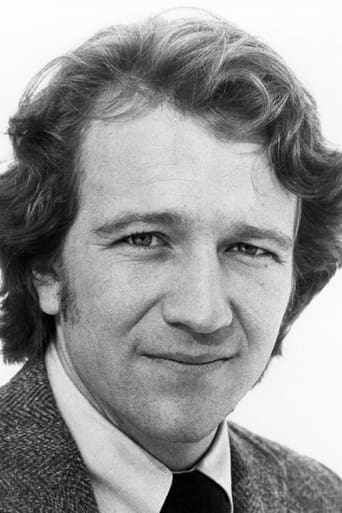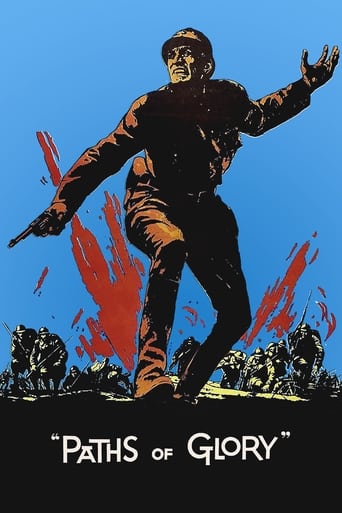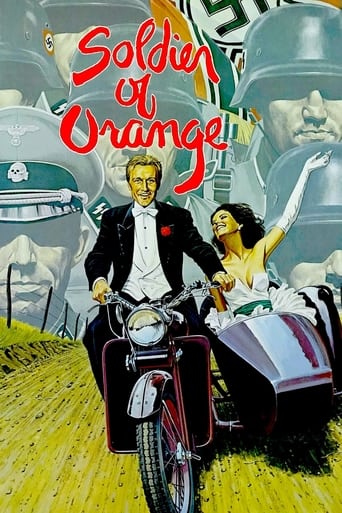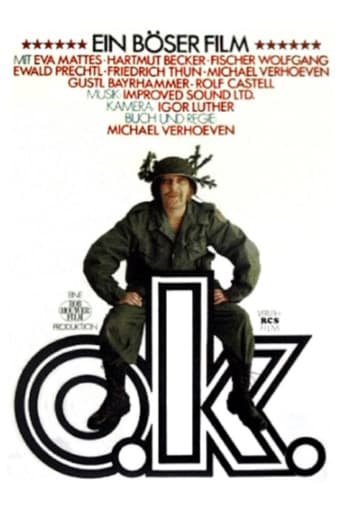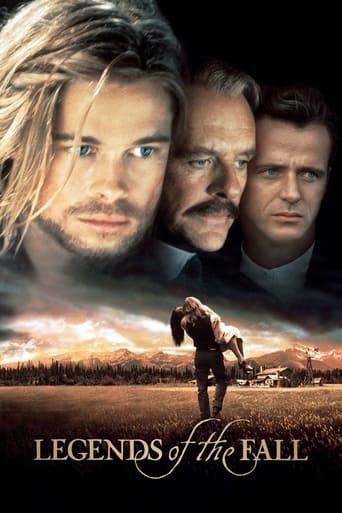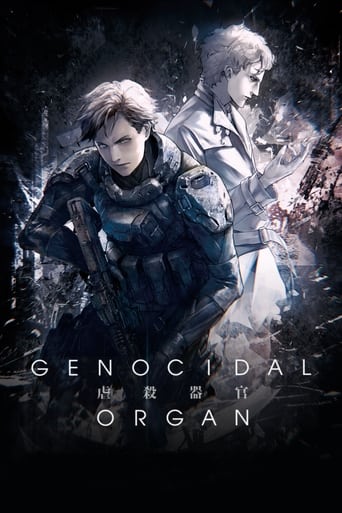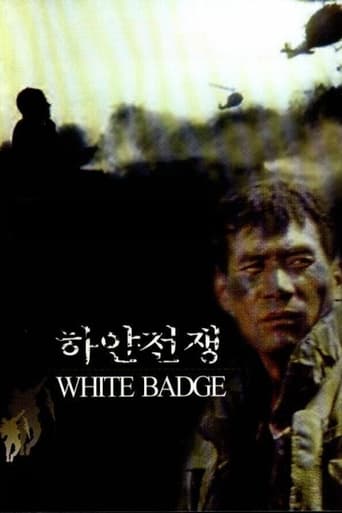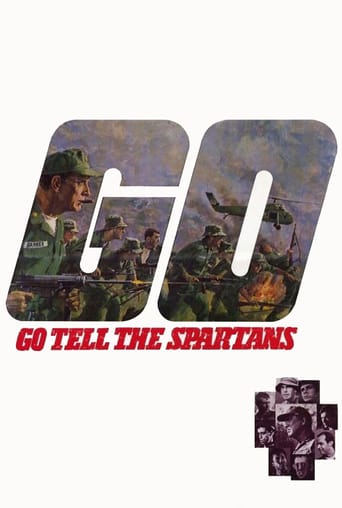
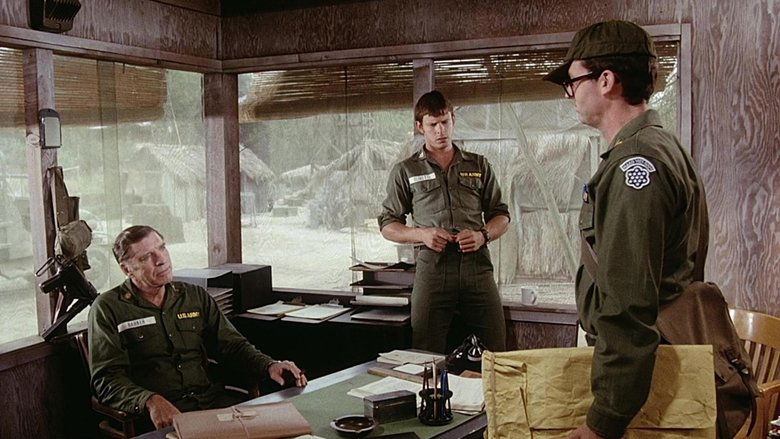
Go Tell the Spartans (1978)
Go Tell the Spartans is a 1978 American war film based on Daniel Ford's 1967 novel "Incident at Muc Wa." It tells the story about U.S. Army military advisers during the early part of the Vietnam War. Led my Major Asa Barker, these advisers and their South Vietnamese counterparts defend the village of Muc Wa against multiple attacks by Viet-Cong guerrillas.
Watch Trailer
Cast


Similar titles
Reviews
That was an excellent one.
A different way of telling a story
I think this is a new genre that they're all sort of working their way through it and haven't got all the kinks worked out yet but it's a genre that works for me.
A clunky actioner with a handful of cool moments.
The title is from Herodotus who recorded from a plaque left by the several hundred Spartan warriors who died at the Battle of Thermopylae around 480BC. "Go, tell the Spartans, stranger passing by. That here, obedient to their laws, we lie." This is a war movie and carries several recognizable stereotypes but not the OLD stereotypes, not the braggart from Texas or the wise guy from New York, but rather men who differ in their attitudes towards the war. Burt Lancaster is the experienced veteran of World War II, practical and kind of old for the rank of major. There is the gung ho lieutenant who is fiercely patriotic and desires nothing more than to kill Gooks. There is the educated naive corporal who refuses to reveal why he volunteered for Vietnam, and who is portrayed as an idiot begging the children of a village to accept chocolate from him. There is the seasoned master sergeant who knows it all but is burned out and takes to booze when off duty, unlike some of the others who are doing hard dope. There is the native guide who is usually used for comedy but here represents the stern and unyielding fact that war is brutal and there is no room for kindness. The black guy who handles communications at the command center provides some comedy relief. And there is the intelligence officer, the new lieutenant, who brings to Lancaster's command a systematic way of judging the threat to each outpost, and at whom Lancaster stares in wide-eyed disbelief as the officious young man gives his pitch. Some of the characters are overdrawn.It's odd to see Americans and South Vietnamese using old-fashioned weapons of World War II. The Vietnamese seem like children carrying M-1s that are too big for them. No M-16s or anything. That came later. This is 1964 in the jungles of South Vietnam and we don't have many facilities available there, yet. It's from a novel written by Daniel Ford, the correspondent, not John Ford's grandson. Ford was able to get down with his men. He ate their rations, slept on a blanket in the bush, and bonded with them. He's left a blog in which he explains the difficulty he had getting his "novel" published and sold. Nobody was interested in Vietnam, yet. I remember the general lack of interest in 1964. I was about to leave civilization for a few years and my roommate brought my attention to an inconspicuous article in the New York Times about our increasing involvement. I politely dismissed its importance.It was an ironic war in many respects, impossible to tell the good villagers from the bad villagers, much like today's asymmetric warfare. And politics was woven in and out of the war itself. Lancaster has learned that an outpost is about to be attacked so he asks for air support. There is a problem. The aircraft are grounded in Saigon because they may be necessary to suppress a coup against the South Vietnamese government. The American advisors don't win very much, if anything at all. The final scene doesn't bring up the usual "The End" because it wasn't the end. It just shows us "1964", with another decade of misery to come.
"Go Tell The Spartans" gives the audience a pretty compelling look at the U.S. in Vietnam in 1964, before things escalated considerably. It shows how U.S. forces were unprepared for this particular military operation, and shows that perhaps the U.S. should never have got involved. The acting is good, and the characters are interesting.I did have some quibbles with the movie, however:(1) Because the movie was made independently (probably because Vietnam was still a hot potato with major Hollywood studios), the movie comes across as impoverished in a number of aspects. Also, southern California simply does not look like Vietnam.(2) Like just about any other movie dealing with Vietnam, the movie is very one-sided with its arguments. I'm not saying that the argument that the U.S. should have never got involved is without legitimacy - I'm saying that the Vietnam was was a very complex war. The movie fails to mention what the South Vietnam people thought of the U.S. helping them, nor does it mention how brutal the North Vietnam forces were to both opposing soldiers as well as civilians. (If the North Vietnamese were not so bad, why were there thousands of boat people fleeing Vietnam at the end of the war? Something to think about.) Anyway, I think a more balanced viewpoint would have made the movie more interesting as well as accurate.
As one who served as an MACV adviser (1965) and later in the infantry in Vietnam (1966), I can only echo those that say this is the best Vietnam film ever made. The cast is excellent. Johnathan Goldsmith was right on with his burnt out NCO portrayal. The overall tone of the film was perfect. This film had no political ax to grind and showed the situation we found ourselves in on a daily basis. No other film about Vietnam comes close to the truth as this one does. Burt Lancaster's best performance since "7 Days in May". Ted Post was never given the credit he richly deserves for his direction. Craig Wasson showed what a "rookie" was up against being thrown into an overwhelming spot. Everyone looked the part of a MACV adviser. I can speak to that from the position of: "Been there, done that, got the T shirt"
***There are Spoilers*** Based on the 1967 Daniel Ford novel "Incident at Muc Wa" the movie "Go Tell the Spartans" shows how the US got slowly drawn into the disastrous Vietnam War in thinking it was both winnable and a noble cause when it fact, as history has shown us, it was anything but.The film starts in that fateful summer of 1964 when the US Military had only an advisory involvement in helping the South Vietnamese Government in its war against the insurgent Communist Vietcong, known as Charlie to the GI's, who were overrunning the country. Maj. Asa Barker, Burt Lancaster, who had served his country in two previous wars, WWII & Korea, is in charge of a South Vietnamese outpost in the Mekong River Delta that's surrounded by hundreds of Vietcong irregulars. The Major is desperately short of both men and ammunition to hold off the Vietcong who are trying cut off his supply lines and then overrun his weakly defended outpost.With the handful of men, both US GI's and local RVN troops, at his disposable Maj. Barker knows that it's only a matter of time before the determined and tenacious Vietcong will achieve their objective. The GI's at the outpost are either green recruits, one being a draftee, or burned out veterans who, despite their superiority in air and fire power, are in no way any match for the seasoned battle hardened Vietcong. The one thing that both Maj. Barker and his Vietnamese interpreter Cowboy, Even C. Kim, knows is that the fight is not only with the Vietcong but most of the Vietnamese population in that area who are not only sympathetic towards the enemy but are in fact the enemy-Vietcong-itself!***SPOILERS*** We get to see in the movie just how totally unprepared the US was in fighting the war for the hearts and minds of the Vietnamese people in the persons of both high and ethically minded Lt. Hamilton, Joe Unger, and Cpl. Courcey, Craig Wesson. It was their high-mindedness, unlike Maj. Barker and Cowboys pragmatic common sense, that lead to the disastrous results that was to soon follow in the movie! One of the best Vietnam War films ever made and at the same time one of the most overlooked. The fact that "Go Tell the Spartans" was made-three years after the war ended-when the wounds of the Vietnam War were barley healed had the movie going Amercan public in no mood to go see it. Even though the film was about as accurate as a description of why and how we got involved in that disastrous war, against the sound advice of men like Maj, Barker, as any movie about the subject that's ever been released! Before and after the Vietnam War ended!Burt Lancaster loved the script so much that he contributed $150,000.00 out of his own pocket to finance "Go Tell the Spartans" when it's budget ran out with a couple days left to be filmed. Lancaster also disregarded a serious knee injury he suffered in order for him to star in the movie which had him limping all throughout the film!



